
扎根日本的閒者,披露日本的不同面向,深入認識更真實的日本。 ( ^_^)/~~~ My blog https://motonojp.com/
Reasons for Japan to ease restrictions on electric scooters
Bought a toy scooter for my son a while ago and made him happy for days. It's just that the freshness has passed, and recently he has been too lazy to push out and slide. Now, even in school, he occasionally gets lazy. If one day the school allows students to go to school on scooters, I believe he will go to school happily every day.
Although the day when schools open scooters is far away, the Japanese government passed a revision of the Road Traffic Law last month on April 29, 2022. One of the contents happened to be a little related to the "scooter" that my family recently purchased, so I started to pay attention to the relevant news.
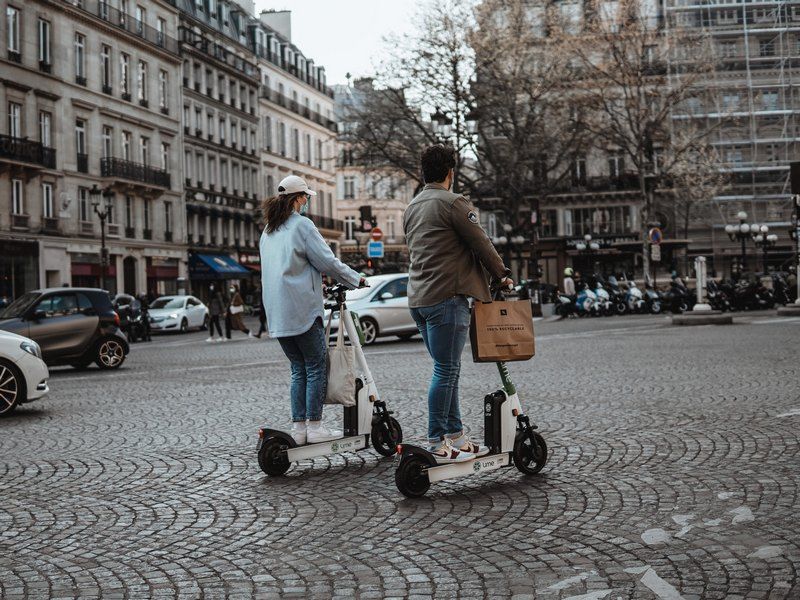
The specific modifications are as follows
- Lower restrictions on " electric scooters ," which were originally classified as motorcycles.
- The new regulations stipulate that those who have a maximum speed limit of 20km/h or less, as long as they are over 16 years old, can ride without a driver's license. (Electric scooters exceeding 20km/h still follow the original regulations)
- It is not mandatory to wear a helmet. Those above 6km/h must drive on the lane , and those below 6km/h can drive on the sidewalk as a bicycle. (In short, roughly compared to electric bicycles)
Why did the Japanese government amend the above regulations at this time?
Personal estimates may be based on the following reasons. Since they are personal opinions, they may not be comprehensive and are for reference only.
- Europe and the United States and other countries set off a wave of electric scooters in advance.
- Solve the existing traffic chaos, hoping to solve the last mile problem.
- The lingering impact of the new crown epidemic.
- There are civil society groups assisting in the legislative process.
1. Europe and the United States and other countries set off a wave of electric scooters in advance
Unpowered scooters are said to have been born as early as 100 years ago, and became a popular children's toy around the world at the end of the last century. The promotion of electric scooters in Europe and the United States through the sharing industry has also led to popularity in recent years, and Japan has quickly followed. However, the biggest obstacle to the rise of new transportation vehicles mainly comes from the restrictions of laws and regulations in various countries. Because the United States is a federal country, states can make their own laws. In the face of this new type of transportation vehicle in a gray area, some states and counties are relatively open, such as California, Texas, and Florida. The first to allow electric scooters on the road. Madrid, Paris and Berlin in Europe are also one step ahead of the opening.
Europe and the United States took the lead in formulating new regulations, providing standards for Japan to refer to. Below is the report submitted by the Japanese National Police Agency after inspecting the relevant laws and regulations of various countries in 2021.
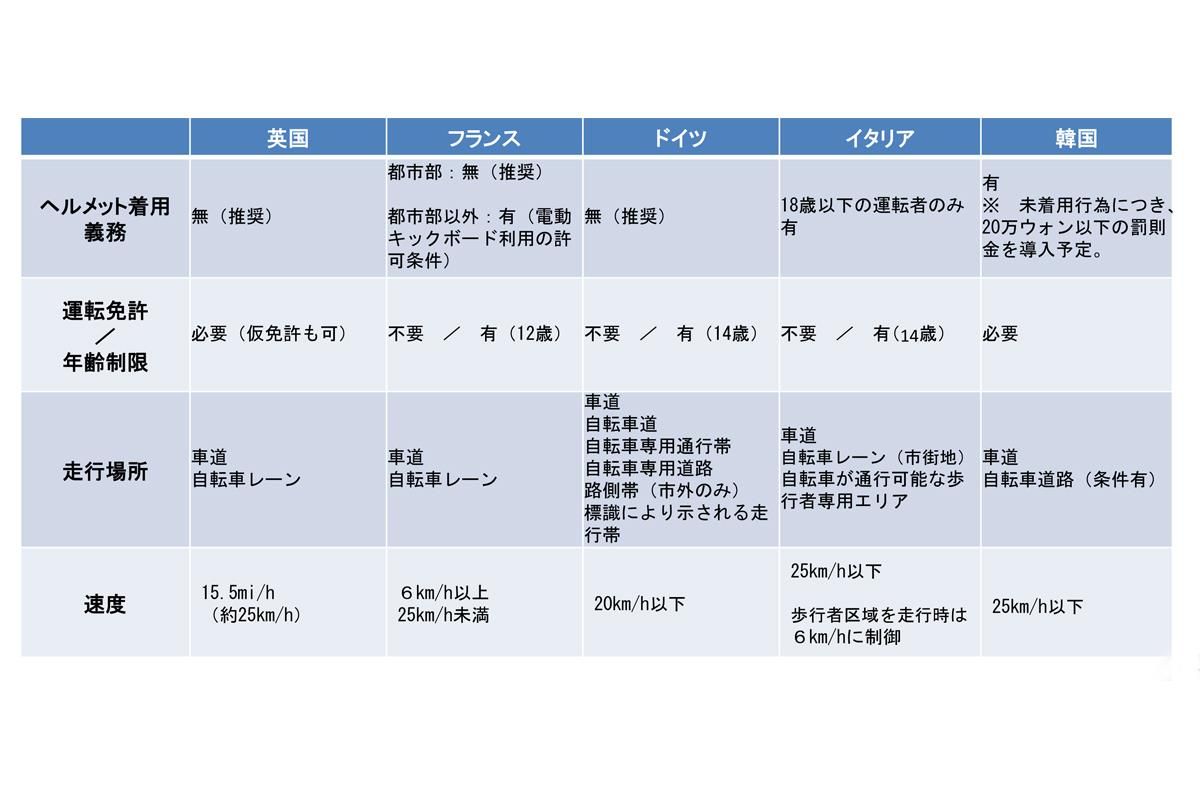
2. Solve the existing traffic chaos, hoping to solve the last mile problem
Another reason for the amendment passed by Congress this time is that cheap and high-quality electric scooters can already be easily purchased on the market, but due to the lack of regulatory control, buyers can travel at will, and traffic chaos is frequent.
Before the establishment of the new regulations, electric scooters were regarded as a type of motorcycles. Riders must have a driver's license, and skateboards are also similar to motorcycles. They must be equipped with relevant parts and licenses before they can legally go on the road.
But buyers buy non-compliant electric scooters in the store and ride on the road on their own. Some people will follow the example, think it's cool, and follow the purchase. Many people think that this kind of electric scooter is like a toy scooter. It does not need a driver's license and can go on the road at will.
After the amendment of the law, the restrictions on use have been relaxed, so that more consumers can use this kind of small mobile vehicles more easily, and at the same time, it can solve the mobile problem of the last mile.
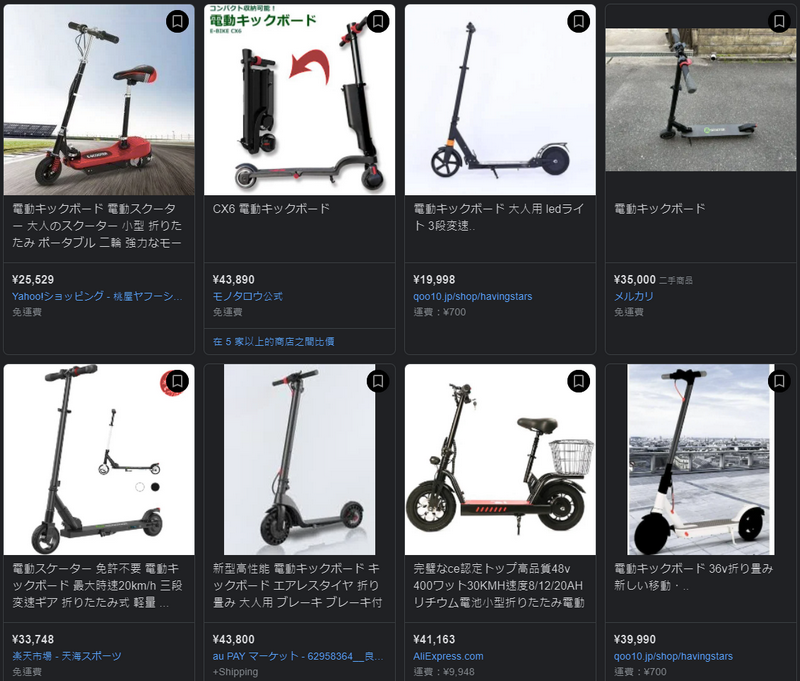
3. The impact of the delay of the new crown epidemic
Workers in some industries cannot telecommute from home and often have to travel to work by public transport. Therefore, people who are afraid of infection tend to drive and ride bicycles by themselves in order to avoid infection. Electric scooters are also a suitable means of transportation. In recent years, shared bicycles and shared electric scooters have also become popular in Tokyo, Osaka, Kyoto and other metropolitan areas. Recently, the shared electric scooter of the company in the picture below is often found around the station. Since they had started this business before the law was revised, you can see the white license plate hanging on the back of the car.
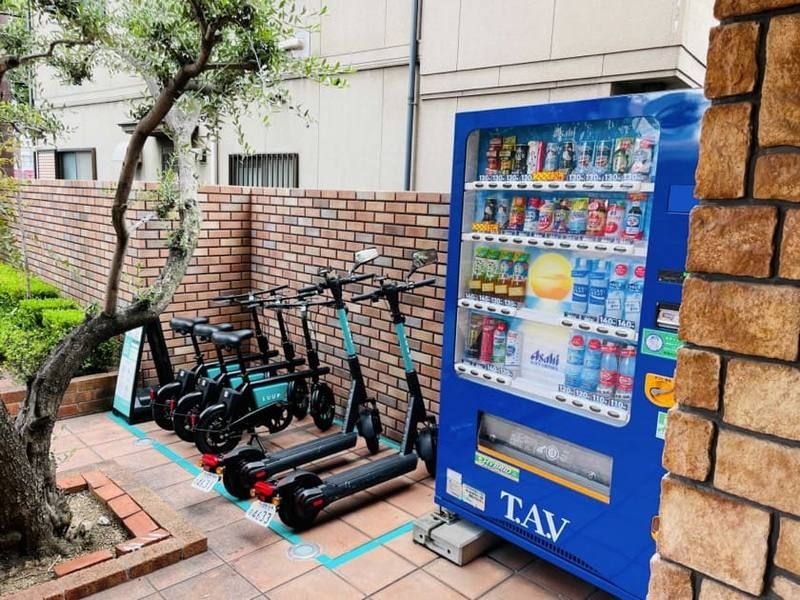
4. There are civil society groups to assist in the legislative process.
In 2019, the "Micromobility Promotion Council" (Micromobility Promotion Council), which was formed by electric scooter-related companies themselves, played an important role in the revision. Just by looking at the name, you can infer the purpose of this non-governmental organization. Their main job is to educate consumers to develop a law-abiding habit, provide various data for government agencies to refer to in order to formulate policies, and cooperate with the police to find out the black sheep of the industry.
This practice is not limited to the electric scooter industry, but is also a common business practice for most Japanese companies. Although they are competitive peers in normal times, they both believe in the concept of " everyone make the cake bigger ", especially in the more innovative industries, the more obvious this tendency is.
To give another example, many years ago, the design method and probability of the gashapon in the game caused social problems. In the end, it was solved by the game companies all abiding by the game design guidelines independently determined by the game association .
What if there are game companies that refuse to abide by the Gacha design guidelines? As long as it won't be protested by most consumers, it's fine. However, in the event of a major consumer protection law case, the game's lifespan will be short, and the company's credit will be seriously affected.
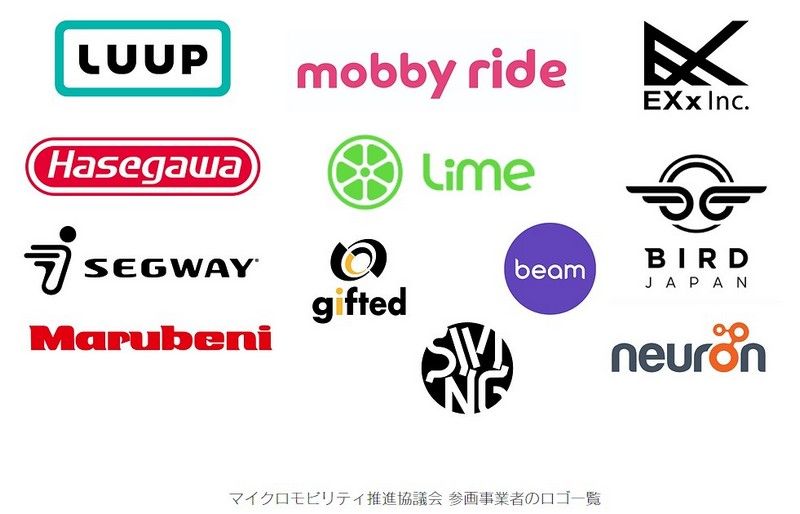
After the amendment is passed by the Congress, it will usually be formally implemented within 1-2 years. It is expected that Japan will develop and expand in this industry in order to solve the personal last mile problem. XD
2022/05/18 posted.
Original link to Japan behind-the-scenes observation
Like my work?
Don't forget to support or like, so I know you are with me..
Comment…